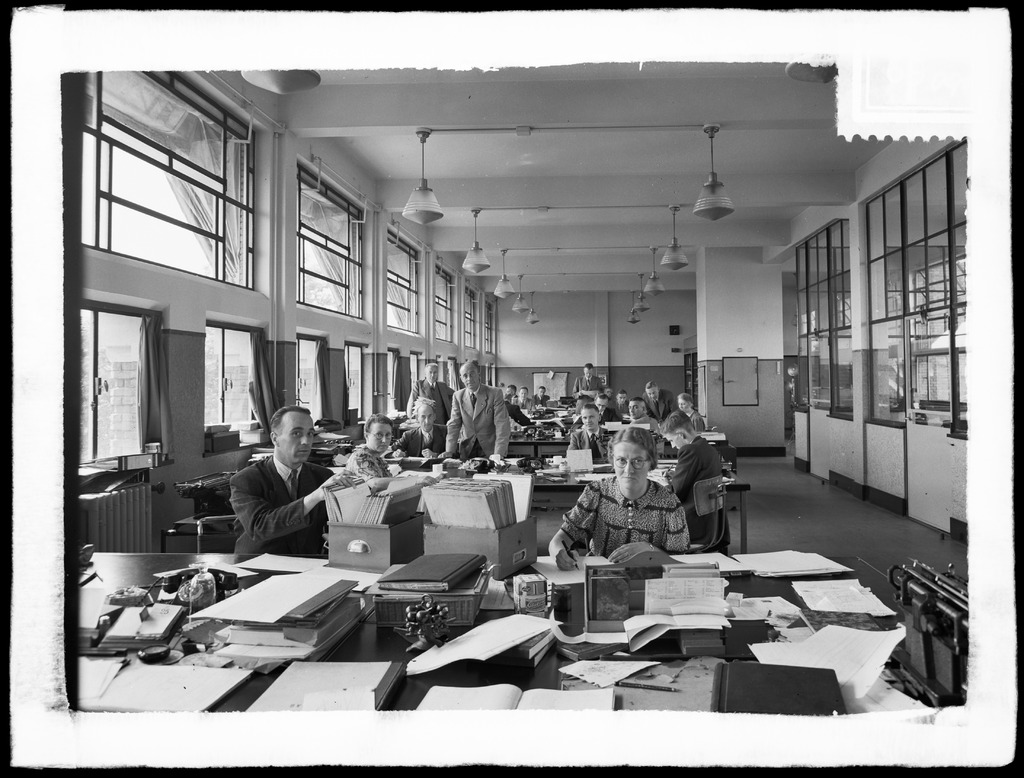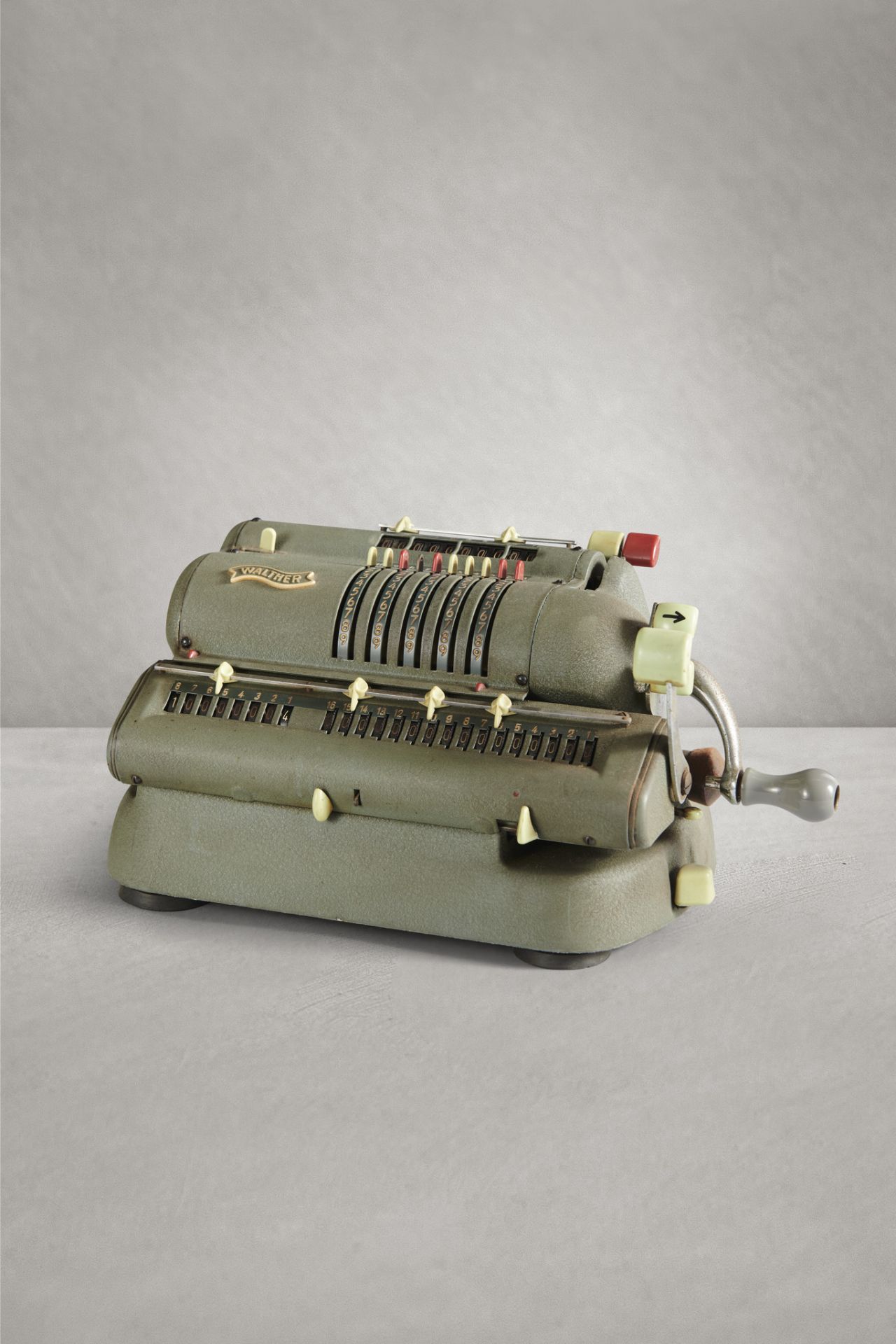Crunch the numbers!
Heineken's financial records are as old as the brewery itself. At the time the branches in Amsterdam (1864) and Rotterdam (1873) were established, staff were paid in cash, in pay packets. The clerks meticulously recorded all expenses for the brewery in cash books. Similarly, cash income had to be counted, recorded, stored in the vault, or taken to the bank.
The financial staff used abacuses, slide rules, pencils, and scrap paper to perform calculations. The administration and disbursement of the non-contributory Pension Fund founded by Henry Pierre Heineken (1923) and the Support Fund for employees facing financial difficulties were also done manually, with cash.
Female labour
In that same year, 1923, a major development towards cashless payments occurred in the Netherlands: the Postcheque and Giro Service, founded in 1918 and directly linked to the PTT postal service, initiated a major mechanisation operation. The aim was to centralise the administration of giro accounts and mechanise it using 'punch cards.’ Fleets of data typists carried out the work, and according to management, women worked far more efficiently than men. This was all the more surprising in a time when the government legally required women to quit working after marriage. It’s worth noting that Heineken did not adhere to this rule either, as evidenced by several married female employees within the accounting department of the Rotterdam branch.

Adding machine
The Postcheque and Giro Service’s mechanisation project did not go smoothly, and even after World War II numerous transactions in the Netherlands were still done with paper banknotes and coins. However, in the 1950s the work became easier with the arrival of (affordable) mechanical calculators that allowed you to add, subtract, multiply, and divide.
Cash?
This Walther brand green mechanical adding machine comes from the Heineken offices in Amsterdam, Rotterdam, or Den Bosch. The calculator must have been a great help to the accounting staff. By then, Heineken had grown into the largest brewery in the Netherlands with three sites and an export division. When Heineken Rotterdam and Amsterdam merged into the mega facility in Zoeterwoude after 1975, the Heineken head cash office there was combined with an indoor PTT post office. And the adding machine? It retired.
